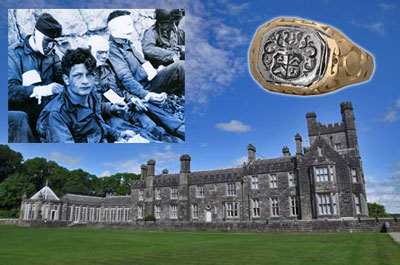
Who would have thought such a disaster could happen! And that I would be caught up in the midst of it? I was in Dover, working fast to patch up wounded soldiers coming off the boats from Dunkirk. Hundreds of thousands of troops surrounded and trapped on a beach in France, the Luftwaffe strafing them with bullets, and all we could do was get everyone who had a boat to go off and rescue them. Had we gone back to medieval times? My meager nurse’s training from the last war was not enough. Three young men dead on my hands already; one of them leaving me with a most nerve-racking final request. I felt so utterly unprepared: what was I doing here? What was I playing at?
It was an extraordinary sight, the men pouring off boats of all shapes and sizes and tramping through the town to the railway station, some on stretchers, bleeding and delirious, or worse. A thick mess of glutinous blood covered the floor in our makeshift surgery: a draughty church hall that reeked of human death and all its fluids, lightly confused by the acidic stench of sterilization.
They’d picked me up at dawn in a bus packed with doctors and nurses from the area, telling us we were here for a few days at least. It was well past midnight now, and at last I had five minutes to rest. I was sitting in a dusty back room where they’d set up a few beds, but every time I closed my eyes all I saw was blood and gore, and I could still hear the screams of men as anesthetic and brandy had begun running low.
After two men dying on me, I was called to help a bloody mess of a young officer by the name of Jarroby. He had a vast gash of shrapnel in his side and, as I peeled off the bloody wodge of rags, I quickly realized that it was too late for surgery; too late for anything. His bleeding was relentless: spurts pulsating the life out of him. I pushed desperately into his rib cage.
“You’re going to be all right. You’ll be just fine,” I said softly.
“I’m going to die, aren’t I?” he murmured, his refined tones sounding very young indeed. He must have been just out of school.
“No, you’ll be fine,” I lied, inwardly panicking. What should I do? Should I tell him he was going to die in case he had something he needed to say? Was I doing or saying the wrong thing?
“If,” he stammered quietly. “If I die w-will you give my ring to someone?” He tried to raise his hand, and I saw the gold band loose on his finger.
“Of course,” I said, slipping it off and holding it out in my hand. It was a man’s signet ring, large, old, valuable.
“Give it to Carrington,” he murmured, his voice breaking as he spoke the name. “In Parnham, near Litchfield.”
“That’s close; I can get it there,” I said gently. “Is there a message?”
“Say — say I love you,” he choked horribly.
“Of course I’ll give it to her,” I said.
“He’s a man,” he whispered, his dark eyes looking into mine, large with dread. He would be hung for this if I told anyone. If he wasn’t dead already.
A surge of blood rushed to my face, without me being able to stop it. I’ve never met a homosexual before. Mr. Jennings used to say there was something wrong with them: their insides were all round the wrong way. I’d always been led to believe they were, well, not terribly normal, but here was a gentle, handsome, dying man telling me to send his last message to his friend, whom he loved. I was speechless for a moment, unraveling the dense mesh between morality and reality.
“I’ll tell him,” I whispered.
And then, as if something had suddenly occurred to him, he opened his eyes wide, and he gasped, “You won’t — you won’t hand him in, will you?”
“No,” I said, meeting his gaze. “You can trust me.”
“I — I wasn’t thinking of how I could land him in trouble, only about my own death. How selfish I am.” And his lean body began to shudder with tears.
I wanted to wrap my arms around him, but all I could do was find his hand and squeeze it tight, still pressing on the dressings with all my strength.
“You’re the brave one,” I said. “You’re the hero. Carrington will be fine; don’t worry about him. Just rest and breathe easily.”
And, as he told me about their love, his breath became easier, and easier, until it stopped. Another small life just begun and already over. A faraway star glowed brighter and then disappeared into the void.
What an insignificant, unprepared army of souls we are.
* * *

